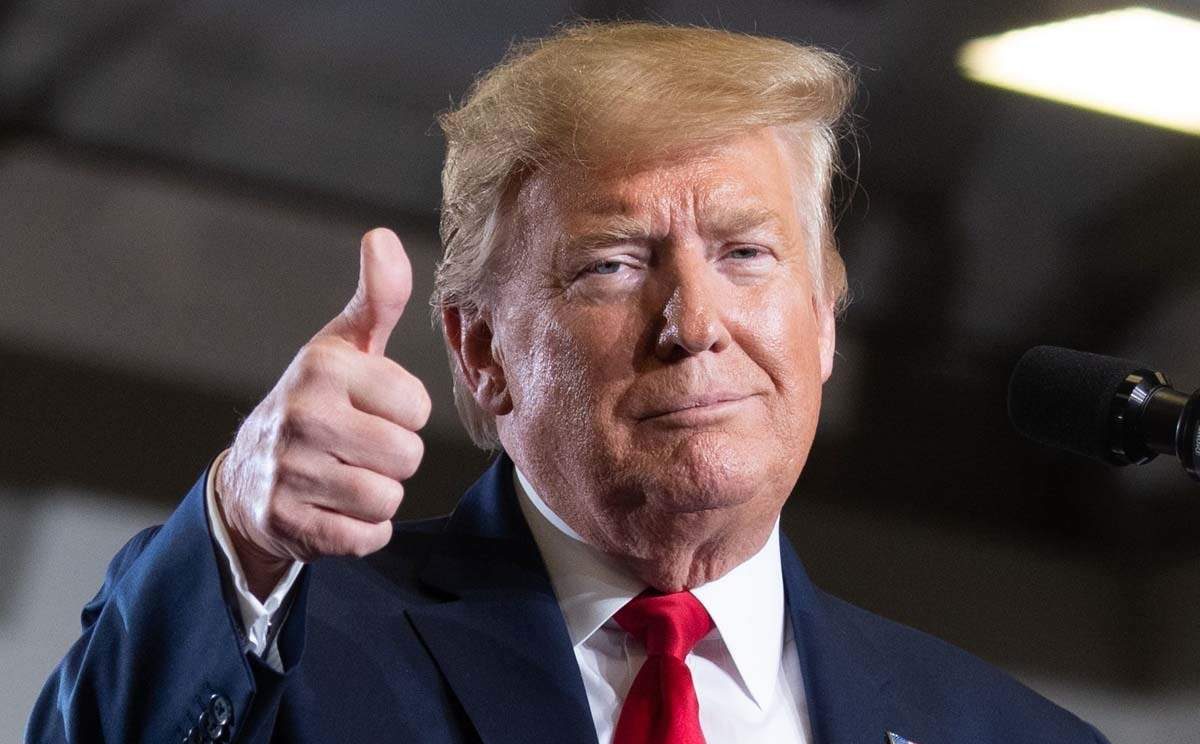Trump Slams Fed After ECB Rate Cut, Renews Pressure on Powell
18.04.2025 9:00 1 min. read Alexander Stefanov
Donald Trump has reignited his attacks on Federal Reserve Chair Jerome Powell, criticizing him for holding off on interest rate cuts despite slowing inflation.
Trump’s latest outburst came shortly after the European Central Bank lowered rates, adding to his argument that the U.S. is falling behind.
Labeling Powell “Too Late,” Trump declared it was time for his removal—an unusually direct demand that further erodes the longstanding norm of political non-interference in Fed affairs. Florida Senator Rick Scott echoed the sentiment, calling for fresh leadership at the central bank.
Powell, in contrast, has remained firm. Speaking in Chicago, he reaffirmed that the Fed’s independence is protected by law and signaled no intention to leave before his term ends in 2026.
Market expectations mirror the divide. While few expect a rate cut in May, the odds rise to over 65% for June. Crypto markets, especially Bitcoin, remain highly reactive to Fed liquidity signals—a 2024 study found over 65% of Bitcoin’s price action is tied to monetary conditions.
Meanwhile, real-time inflation trackers like Truflation suggest that current cost pressures are lower than official data shows, potentially justifying a looser policy sooner rather than later.
With politics and market forces colliding, pressure on the Fed to act is mounting fast.
-
1
U.S. Bank Advises Clients to Drop These Cryptocurrencies
29.06.2025 10:00 2 min. read -
2
Chinese Tech Firms Turn to Crypto for Treasury Diversification
26.06.2025 17:00 1 min. read -
3
FTX Halts Recovery Payments in 49 Countries: Here Is the List
04.07.2025 18:00 2 min. read -
4
What Are the Key Trends in European Consumer Payments for 2024?
29.06.2025 8:00 2 min. read -
5
What Brian Armstrong’s New Stats Reveal About Institutional Crypto Growth
29.06.2025 15:00 2 min. read
JPMorgan Lawsuit Threatens Crypto Access and Open Banking Rights
JPMorgan and other major U.S. banks are under fire for a lawsuit aimed at dismantling the Consumer Financial Protection Bureau’s (CFPB) newly established “Open Banking Rule.”
Greed Holds as Market Momentum Builds: What is the Market Sentiment
The crypto market remains firmly in “Greed” territory, with CoinMarketCap’s Fear & Greed Index clocking in at 69/100 on July 19. Despite a modest 24-hour dip from 71, the index has now held above 60 for 11 consecutive days.
Top 7 Crypto Project Updates This Week
The crypto industry saw major advancements this past week across DeFi, NFT, Layer 2, and AI-powered platforms.
Peter Thiel-Backed Crypto Exchange Files for IPO
Cryptocurrency exchange Bullish, backed by billionaire investor Peter Thiel, has officially filed for an initial public offering (IPO), marking a major step toward entering the public markets.
-
1
U.S. Bank Advises Clients to Drop These Cryptocurrencies
29.06.2025 10:00 2 min. read -
2
Chinese Tech Firms Turn to Crypto for Treasury Diversification
26.06.2025 17:00 1 min. read -
3
FTX Halts Recovery Payments in 49 Countries: Here Is the List
04.07.2025 18:00 2 min. read -
4
What Are the Key Trends in European Consumer Payments for 2024?
29.06.2025 8:00 2 min. read -
5
What Brian Armstrong’s New Stats Reveal About Institutional Crypto Growth
29.06.2025 15:00 2 min. read


